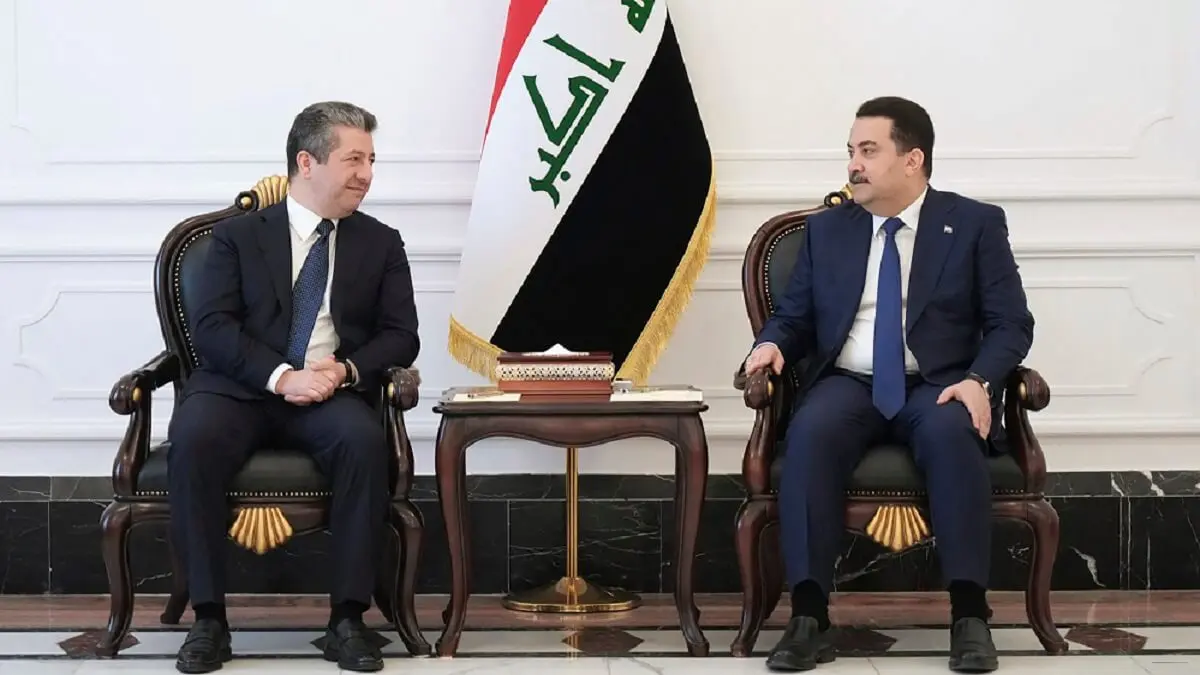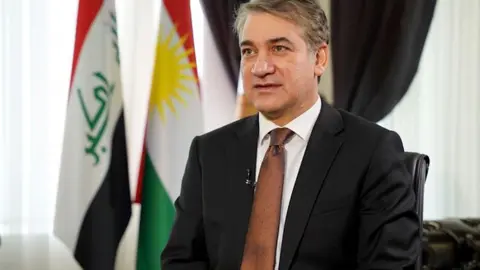Pro-Iran factions seen undermining Sudani’s bid to bridge positions of Iraqi Kurdistan parties

Analysts see signs that the Patriotic Union of Kurdistan (PUK) and its pro-Iran Iraqi political allies are unhappy about Prime Minister Mohammed Shiaa Sudani’s mediation in Iraqi Kurdistan and are likely to try to undermine his initiative aimed at expediting the formation of a government in Iraqi Kurdistan.
During a visit to Erbil and Sulaymaniyah in recent days, Sudani sought to convince the two main political parties in Iraqi Kurdistan of the need to reach an agreement on a regional government.
Divergent views between the Kurdistan Democratic Party (KDP) and the Patriotic Union of Kurdistan (PUK) have continued to block the formation of the government.
The Iraqi prime minister is said to have called on Kurdish parties and parliamentary blocs to “put the interests of the Kurdish region ahead of their partisan differences”.
The ruling KDP came first in a parliamentary election held last month, winning 39 seats in the 100-seat parliament, positioning it to lead the next regional government.
But the party’s historic rival and junior coalition partner in the old government, the PUK, which came second with 23 seats, has disputed the KDP’s leadership role and is hence obstructing the process.
An ominous sign has been the reluctance of pro-Iran Shia parties in Baghdad to back Sudani’s initiative, which cuts across their desire to maintain the instability of Iraqi Kurdistan and undermine the position of Sudani as he eyes a second term in office. The success of his mediation would be viewed as a great achievement and shore up his standing.
Experts say Sudani was wary of repeating in Iraqi Kurdistan of the type of political showdown which had led political parties and parliamentary groups in Baghdad to delay the election of the speaker of parliament for months in order to impose their agenda regardless of the higher interests of Iraq.
Election of an Iraqi parliament speaker finally took place on October 31, after a nearly year-long deadlock.
Kurdish leader and head of the KDP, Masoud Barzani, said in recent days that the time has come to negotiate the formation of a new government. He added, “The litmus test was the ballot, but what matters most now is the formation of the next government in the Kurdistan Region based on the following principles: one region, one parliament, one government and a unified Peshmerga force.”
The KDP is described as eager to accelerate the formation of the government while the PUK has been seen as hindering the process.
The PUK’s tactic has been to ratchet up demands for its share of ministerial portfolios regardless of election results, relying on the support of pro-Iran Shia parties in Baghdad.
Kurdish political analysts believe that the real problem obstructing the formation of the government is not related to disagreements over portfolios but is due to the disruptive role of Iran and its allied parties in Baghdad.
This factor has been the main stumbling bloc between the PUK leaders and those of the KDP, who reject any outside interference.
The Kurdistan Region has gained greater importance, after having managed to hold parliamentary elections and hence consolidated its constitutional, political and international legitimacy.
Analysts attribute this major success to President of the Kurdistan Region, Nechirvan Barzani, Masoud Barzani’s uncle, who has used his support base at home as well as his diplomatic channels and network of relations to hold the ballot and buttress the stability of the region.
Sudani met party officials and Kurdish Regional Government (KRG) leaders in Erbil. Masoud Barzani and other Kurdish leaders praised Sudani’s role in helping ensure the success of the parliamentary elections in the KRG.
The Iraqi premier stressed his readiness to provide assistance in order to expedite the formation of the new regional government.
During separate meetings in Erbil, with the President Nechirvan Barzani and his first cousin Prime Minister Masrour Barzani, Sudani is said to have discussed the political situation in Iraq and the latest developments in the region.
According to a statement issued by the regional presidency media office, the meeting between Sudani and Nechirvan Barzani discussed the results of the elections, the steps to form the government and the relations between Erbil and Baghdad.
In the city of Sulaymaniyah, the Iraqi prime minister met the head of the PUK, Pavel Talabani and government and party officials.
Analysts says behind Sudani’s mediation was a strong desire to bolster the country’s stability by resolving potential causes of conflict in Iraqi Kurdistan and gaining allies there while he works to preserve Iraq’s neutrality in the conflict between Israel and Iran.
Compared to the rest of Iraq, the Kurdistan region has been a haven of stability. Home to six million people, it touts itself as a stable Middle East oasis, attracting foreign investors with its US and European ties.










